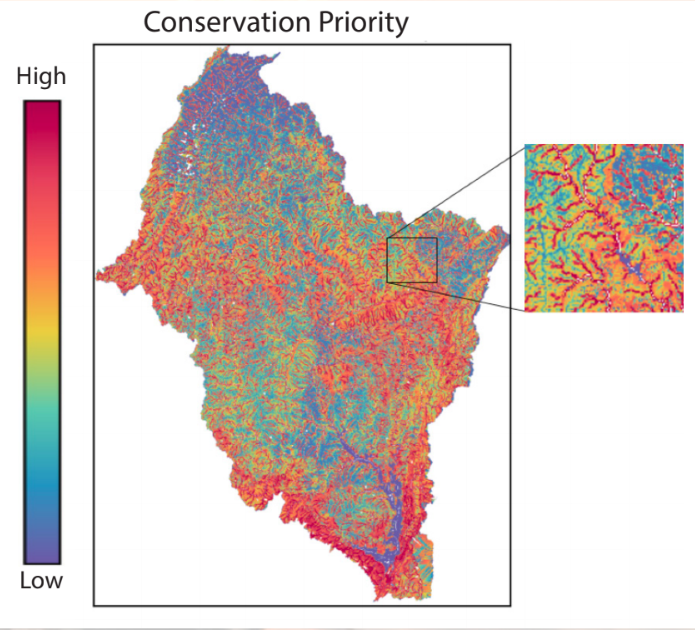Teams Like This
Ecosystem services make important contributions to human well-being, especially in developing countries. Understanding how natural resource management affects food security and public health is vital for policy makers to make informed decisions on sustainable development. This team developed indicators for the natural resource-related United Nation Sustainable Development Goals (SDGs) and tested them in the Nile, Volta and Niger river basins.
OUR APPROACH: The team integrated existing ecosystem service tools to develop a tool (“MESH”) that measures the impact of development projects or land-use changes on human well-being. With this tool, decision makers can better understand the ecological and human welfare outcomes of development activities, and will help countries monitor impacts as they work towards SDGs.

Mapping Ecosystem Services to Human well-being (MESH) Tool
MESH is an interactive tool that shows tradeoffs between environmental protection and human well-being related to SDGs under different landscape management scenarios. Specifically, MESH generates SDG outputs and indicators related to food security (SDG 2), health (SDG 3), water (SDG 6), sustainable cities (SDG 11), climate (SDG 13), and conservation of terrestrial ecosystems (SDG 15). Decision makers can use these reports to understand the conservation policies that can yield significantly greater environmental value while still meeting SDGs.

“Food security goals often run counter to environmental protection goals. MESH enables policy makers to use scientific models of ecosystem services to minimize this type of tradeoff.”
– Justin Johnson, Team Member
In this guest editorial in the Frontiers in Ecology and the Environment, authors discuss the importance of incorporating environment and human well-being synergies into the post‐2015 SDGs.
This peer-reviewed paper in Ecosystem Services explores expert survey results on how 16 different ecosystem services contribute to the 41 targets related to the SDGs.
The Nature Conservancy
EAT Foundation (formerly Bioversity International)
Burkina Faso Ministry of Agriculture and Food Security
University of Idaho
Water Land and Ecosystems
Bioversity International
World Wildlife Fund
Ghana Water Resources Commission
United Nations
Kilimo Trust (Tanzania)
Direction Generale des Ressource d'eau (Burkina Faso)
Center for International Forestry Research (CIFOR)
Bioversity International
National Center for Ecological Analysis and Synthesis (NCEAS), University of California, Santa Barbara
Bioversity International
International Center for Tropical Agriculture (CIAT)
Ghana Ministry of Lands and Natural Resources
United Nations
International Food Policy Research Institute (IFPRI)
University of Minnesota
Stockholm Resilience Center
Stanford University
CGAIR Consortium
King's College London
CSIR
University of California, Los Angeles
Ghana Forestry Commission
Bioversity International
Vital Signs
Bioversity International
Columbia University; Bioversity International
Volta Basin Authority
International Food Policy Research Institute (IFPRI)
University of Minnesota